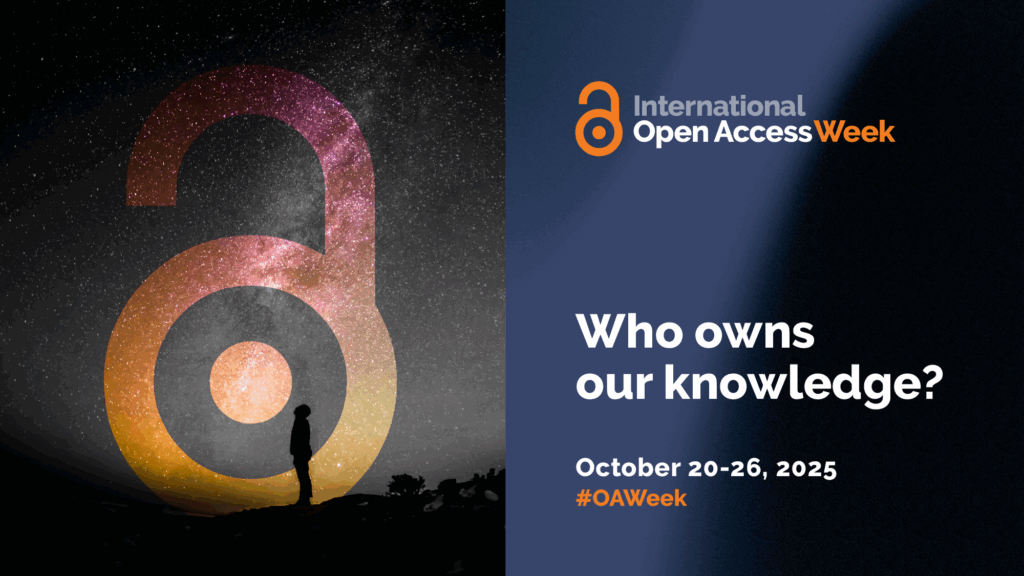October 20-26 is designated as International Open Access Week, a time for the academic community to learn about how sharing knowledge openly can benefit researchers and society more broadly. This year, the theme asks a question: Who owns our knowledge? This question can inform decisions to prioritize community and collaboration throughout the research and data lifecycle, and to approach open scholarship in alignment with the best interests of both the academy and the public. As Open Access Week 2025 comes to an end, we at the Libraries’ want to highlight the opportunities available to all Ball State University affiliates to claim ownership and choose openness in their knowledge production.
Transformative Agreement with Cambridge University Press
Earlier this semester, the Libraries’ announced a new transformative agreement with Cambridge University press that allows Ball State affiliates to publish Open Access in over 400 peer-reviewed journals without paying hefty article processing charges (APCs). Removing APCs as a barrier to sharing scholarship openly is a tremendous step forward for open knowledge at BSU. Learn more about the agreement and how to take advantage by watching the video below.
Recording-20251014_164206.webm
Ball State Open Access Journals
Ball State publishes ten open journals right here on campus. These journals provide publishing and leadership opportunities for students, faculty, and scholars around the world. Visit the Scholarly Publishing research guide for more information, or contact Open Access Publishing and Web Hosting Specialist, Katie Cooke.
Open Educational Resources & Affordable Course Materials
The practice of expanding access to knowledge extends beyond journal articles and research data. Open Educational Resources (OERs) are adaptable open access materials that aid instruction. They can be textbooks, lesson plans, courseware, test questions, and more. Choosing to adopt, adapt, or create OERs for your course means students can access course materials for free and you gain the pedagogical advantage of adaptability through OER’s inherent open licensing. Our OER guide and Course Materials Affordability and Access guide contain more information on how to get started. Please contact Scholarly Communication and Affordable Learning Librarian, Emma Giles with questions.

